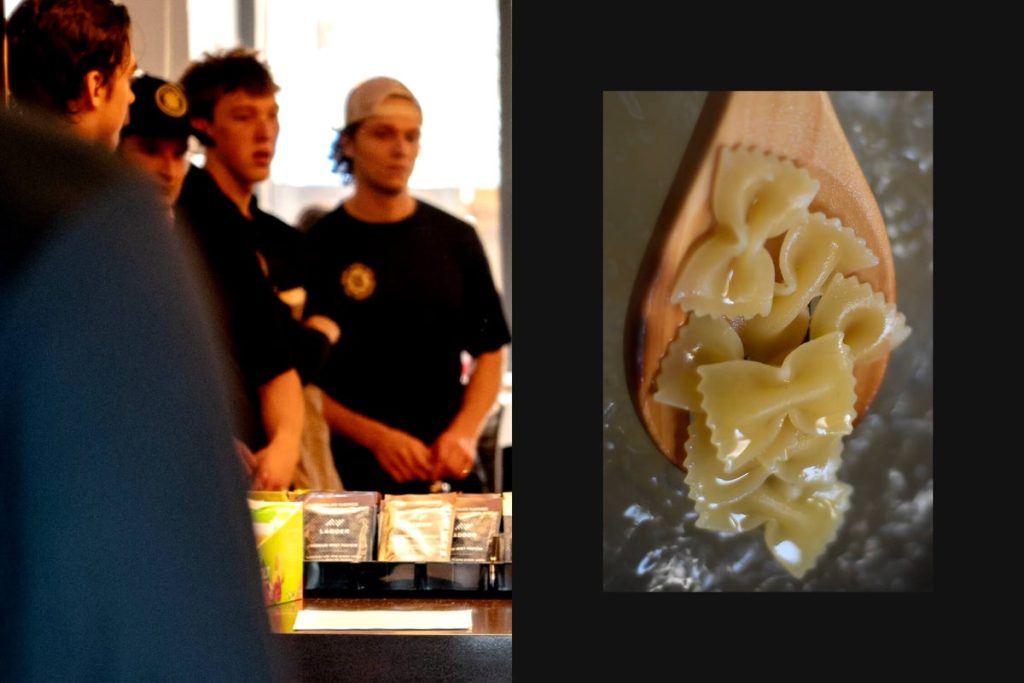Hockey-player Brett Harrison moved from amateur to professional gameplay this past season and faced a new obstacle: how to cook. With hockey teams placing more focus on nutrition than ever, how players fuel their bodies has become a point of scrutiny. Young players in particular are often in need of regular, nutritionally dense meals, partly due to higher caloric needs when compared to older teammates. While teams provide nourishment before and after practices and games, players are on their own outside the rink, oftentimes for the first time.
Harrison, a Boston Bruins’ 2021 third-round pick, never had to learn to cook while playing in the Ontario Hockey League (OHL). During his three seasons, he lived with billet families who provided his meals. His co-players were similar; for example, Trevor Kuntar, another Bruins’ prospect and previous Boston College player, was known for eating chicken and rice daily. However, unlike Harrison, Kuntar can cook; he grew up learning from his father. As a second-year player, Kuntar now has meals down to a science.
Unfortunately, not all players are equipped in the kitchen like Kuntar. Many young professionals who have never experienced cooking or grocery shopping can feel ill-equipped when beginning this new journey. For players not versed in cooking, modern services like DoorDash, Grubhub, and Uber Eats provide easy access to meals. Nevertheless, dining out often comes with a high cost, and not knowing what is truly in your food can be concerning. Even items like Lunchables, once a staple in a former prospect’s diet, contain a multitude of questionable ingredients.
With some assistance upon moving into their apartment, Harrison and his roommates, Mason Lohrei and Frédéric Brunet, began learning to cook. After visits to the store for kitchen essentials, routines settled in. Lohrei, who grew up cooking with his mom, took charge of proteins. Brunet took on salads, and Harrison, once he learned how to boil water, handled pasta and rice. They had weekly traditions like taco Tuesday and often worked together to make meals.
There are plenty of resources to help teach young players how to cook. Pavel Zacha, a player who moved away from home at 12 to focus on his hockey career, found support from a teammate while playing for the OHL’s Sarnia Sting. Zacha’s teammate, Patrick White, enjoyed cooking and taught Zacha how to use home appliances. Later, when he was chosen for New Jersey Devils’ draft pick, Zacha received help from seasoned player Vern Fiddler on becoming self-sufficient.
Proper nutrition can be the difference between succeeding or failing in the NHL, making cooking an essential skill for young players. While many players excel at gameplay, they must also succeed in the kitchen to meet their nutritional needs. As 21-year-old Bruins prospect Ryan Mast puts it, “hockey player or not, you’ve got to learn how to feed yourself.”


